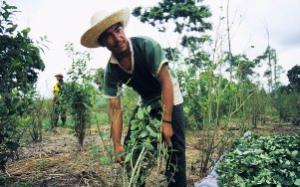Pennsylvania lawmakers are moving on marijuana legalization, the Trump administration finally gets a permanent drug czar, Tijuana saw a bloody year last year, and more.

Pennsylvania Lawmakers Get Moving on Legalization. On Wednesday, legalization proponent Sen. Daylin Leach (D) revealed that he and Sen. Sharif Street (D) are in the final stages of preparing a bill to legalize marijuana. On Thursday, Rep. Jake Wheatley Jr. (D) sent out a cosponsorship memo seeking support for a soon-to-filed House bill he described as "the most comprehensive legalization legislation to date."
Drug Policy
Senate Approves James Carroll as Drug Czar. James Carroll, who has been acting head of the Office of National Drug Control Policy (ONDCP -- the drug czar's office) since February, was confirmed as director Wednesday in one of the last acts of the lame duck Senate. Now, after nearly two years without a drug czar, the White House finally has a top drug policy advisor other than Kellyanne Conway.
Foreign Policy
Pompeo "Concerned" Over Colombia Coca Cultivation Increase. In a meeting with Colombian President Ivan Duque Wednesday, Secretary of State Mike Pompeo said the US is deeply concerned about rising levels of coca cultivation there. He also said the US would work with Colombia to cut production in half within five years.
International
Tijuana Saw 2,500 Murders Last Year as Drug Wars Raged. The state attorney general's office released a year-end report on December 31 saying that Tijuana had seen 2,499 registered homicides in 2018, but more bodies were found before day's end, bringing the toll past 2,500. The report said about 85% of the killings were related to the drug trade, especially a turf war between the New Generation Tijuana Cartel (aligned with the New Generation Jalisco Cartel) and the Sinaloa Cartel. But some of the killings are a result of factional fights within the Sinaloa Cartel over lucrative street-level markets and smuggling routes to the US.
This work by StoptheDrugWar.org is licensed under Creative Commons Attribution-ShareAlike 4.0 International
Comments
Colombia's rightwing president is going easy on cocaine trade?
Colombia went from a lapsed rightwinger (Santos) who became progressive on war and peace and drug policy, and narrowly elected the rightwing Duque, who opposes drug war reform and the reconciliation Santos was promoting. Is Duque cracking down on the cocaine trade and failing, or is he not particularly trying? Are the former rebels he is refusing to reintegrate into the community going back to the only economic option they have?
Add new comment